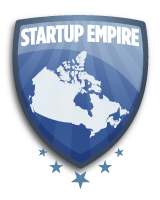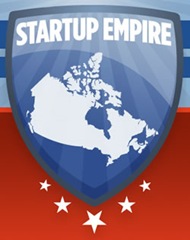
 The first speaker at yesterday’s Startup Empire conference was Microsoft’s own Don Dodge, Director of Business Development for Microsoft’s Emerging Business Team and author of the blog Don Dodge on the Next Big Thing.
The first speaker at yesterday’s Startup Empire conference was Microsoft’s own Don Dodge, Director of Business Development for Microsoft’s Emerging Business Team and author of the blog Don Dodge on the Next Big Thing.
Don’s been in the industry for over 20 years. He started with Digital’s database group and went on to work with five startups over the next dozen years: Forte Software, AltaVista, Napster, Bowstreet and Groove Networks. He now works with VCs and startups in my home away from home, the Greater Boston area.
I got a video interview with Don about BizSpark that I’m currently encoding; in the meantime, here are my notes from his presentation, Starting a Company in Difficult Times.
It’s a Good Time to Start a Company
- In spite of the business news out there, it’s a good time to start a company – it’s a tough time, but a good time
- Markets are driven by two things:
- Fear
- Greed
- Fear is rampant now
- Even Microsoft is down 40%, Google down 60, maybe 70%
- When fear takes over, markets get irrational
- But remember:
- Fear is temporary
- Greed is permanent
- Greed will eventually take over and markets will get better
Why start a company now?
- People are the most important determinant of success
- #1 hurdle is finding great people
- When the economy is in a shambles, great people are available
- During the AltaVista/Napster era, it was the boom times, and it was hard to find people
- In bad times, companies entrench and do just the core things
- The good people at companies get bored doing just the core things — it’s a hiring opportunity for you
- Great people get bored during lulls
- Startups are fun — they’re challenges, but people like challenges
- Startups create tremendous value that allow great people to make a lot of money
- When the economy is bad, customers want to save money
- If you have a product or service that will save them money, they’ll buy it
- Tough times make customers willing to try new things if they believe they’ll make times less tough
- You have to demo to customers how your product/service will save them money
- Productivity boosts are not enough
- Ask yourself: "Is your product or service a vitamin (a nice-to-have) or painkiller (a must-have)?"
- VCs are sitting on tons of cash right now
- In Boston, 10 VC firms are sitting on $2.5 bn
- Infrastructure is cheap
It’s Who You Know
- In the recent past, in Silicon Valley and Boston, even marginal ideas got funding
- Times are tougher now, and “me too” ideas will no longer get funding
- Of the 200,000 companies that got VC funding since 2001; only 380 went public
- That’s a small percentage of successes, but those 380 were enormous hits
- Venture capital is like the music industry; it’s a hit-based business – just as one hit single or album can pay for dozens of so-so ones, so can one great investment
- Ad-supported models will be questioned
- Do the math to figure out what how many hits and what CPM you need to make a million dollars from advertising — it’s shocking, I tell you
- Experienced people with great ideas will always get funding
- Investors will fund people they know or ideas they understand
- The difference between angels and VCs
- Angels are easier to convince to invest in you:
- If they know you or know people who vouch for you, or
- If they understand the business and have an affinity for it
- If they don’t know you, they’re more difficult to convince
- VCs are easier to convince in you if your situation isn’t suited for angel investment — they take more risks and are more willing to “think outside the box”
- Angels are easier to convince to invest in you:
- Networking is incredibly important
- In Silicon Valley, "we have events like this [Startup Empire] every week"
- Investors get comfortable with people they see all the time
- Take time to do some homework on the investors, know who they are and who they’ve invested in
Infrastructure
- Infrastructure is cheap
- When we were starting Napster, it was the boom times
- Finding people and getting office space were incredibly difficult
- Our office’s landlord made us pay 2 years’ worth of rent up front in cash and also demanded stock options
- In these recessionary times, the tables are turned
- Several companies have renegotiated their leases — one has cut their lease down to one-quarter of the original
- You can sublease spaces — many companies have leased too much space and are looking for people to fill it for peanuts
- Office equipment: you can buy used
BizSpark
- Another way to save money: Microsoft’s BizSpark program
- BizSpark provides software for startups, basically for free
- Your startup is eligible to participate in the BizSpark program if:
- Your startup is less than 3 years old
- and makes less than $1 million per year
- Program members get full-featured software:
- Development tools like the full versions of Visual Studio and Expression
- Platform tech like Windows Server, SQL Server and Sharepoint
- You’ll get visibility from being promoted on Microsoft Startup Zone
- We’ll connect you with a united global community of support resources
- It’s so easy to start a startup right now — everything is in your favour
- Cloud computing make things cheaper — you can go with Amazon, Microsoft or other cloud providers
- For more about BizSpark, contact David Crow, Mark Relph or Don Dodge
Q&A
Q: What’s the idea behind BizSpark?
- Microsoft can’t succeed without lots of companies building on its platform and technologies, using its tools
- We’re competing with open source
- When startups are tiny and just getting started out, they take the easy route and go with free software
- Why not level the playing field and make our software free for startups for the first three years or after they get $1 million in revenue?
- So we give them free software, support and visibility
Q: Is Microsoft’s cloud service available through BizSpark?
- Yes. It’s not just the tools, but the cloud services are also available for free
- More details on the site
Q: Are there any particular types of applications that BizSpark is looking for?
- BizSpark is open to any application
- If you’re building an application that adds value or fills a gap, we want to talk to you
- MS acquires about 20 companies a year
- Those companies are generally filling gaps in our product line, doing things better than us or opening new markets
- We partner, and if things go well, we acquire
Q: Do we sign NDAs before going on BizSpark?
- We don’t get into that
- Don’t tell us your secrets
- VCs are the same — most will not sign NDAs
- In my experience as a VC, not a single NDA was invoked — they’re kind of pointless
Q: Could you provide some examples of the types of companies you’ve acquired?
- Powerset
- Fast
- aQuantive
- Currently, the “hot spots” are advertising and online services, but our acquisitions are all over the map
